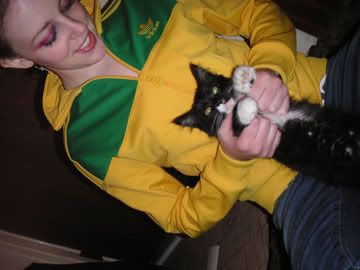Tender is the Night by F. Scott Fitzgerald is a semi-autobiographical novel that follows Dick Diver and his wife Nicole, from their initial meeting as doctor-and-patient, to their inevitable separation. That part is fiction; however, the novel chronicles Fitzgerald's perceived personal and career failings, and his wife Zelda's breakdown (as well as both of their extramarital affairs). Dick and Nicole are masks of the Fitzgeralds, augmented by their real-life friends. I suppose there's no better material than your own life and relationships.
Tender is a beautiful read. Unfortunately, I've read or taught The Great Gatsby too many times—I keep expecting to find all of these symbols and motifs in Tender, much like the eyes of Dr. T.J. Eckleburg and the green light in Gatsby. Perhaps it's amateur to compare Tender with Gatsby. Everyone on the planet has done that. Well, I just did: as a representative of the human race, I'll bet there are many like me who haven't read anything by Fitzgerald save these two novels (ok, perhaps also "Curious Case of Benjamin Button"). If you're expecting another great novel in the vein of Gatsby, which shows us how damaging money and ambition can be, you won't find it here. Sure, money is an important part of Tender, but it's something more inherently human that causes the damage: neuroses and addiction.
Nicole is neurotic, having suffered a mental breakdown caused by her incestuous relationship with her father. She is in constant danger of breaking down again; considering they have two children, Dick does as much as he can to prevent this from happening. Ultimately, though, it is their incompatibility that causes a breakdown of sorts. They realize their marriage is through, but try to ignore it (for the sake of the kids?). Nicole ignores it by considering an affair (which she follows through with) and Dick ignores it by drinking—quite a detrimental amount. The entire arc is believable; many of us, in our relationships, have experienced these feelings, or even acted similarly.
The backdrop is a continuation of Gatsby's roaring '20s: the characters work and take vacations at all sorts of idyllic spots. We see how superficial life is: how people act like nothing is wrong, but in reality, everything they know is falling apart. Fitzgerald skewers the hollow upper class well, because he had plenty of time being a member or knowing them. It's like me writing the great hipster novel (I deny I am a hipster, but damnit, so many signs point to yes...)
I recommend this novel without pause. Fitzgerald has such a way with words—if you don't know it, you've heard this. He's a standard. Also, it's fascinating to see someone spin their experiences into a work of fiction, yet still retain authenticity and honesty. No one is blamed—it isn't Nicole's fault she had neuroses, and Dick didn't marry her for her money. Yet, in the end, Nicole recovers and Dick disappears. Oh! Here's a lesson: when you're in the money crowd, it isn't a lifetime membership.
KK
Subscribe to:
Post Comments (Atom)

No comments:
Post a Comment